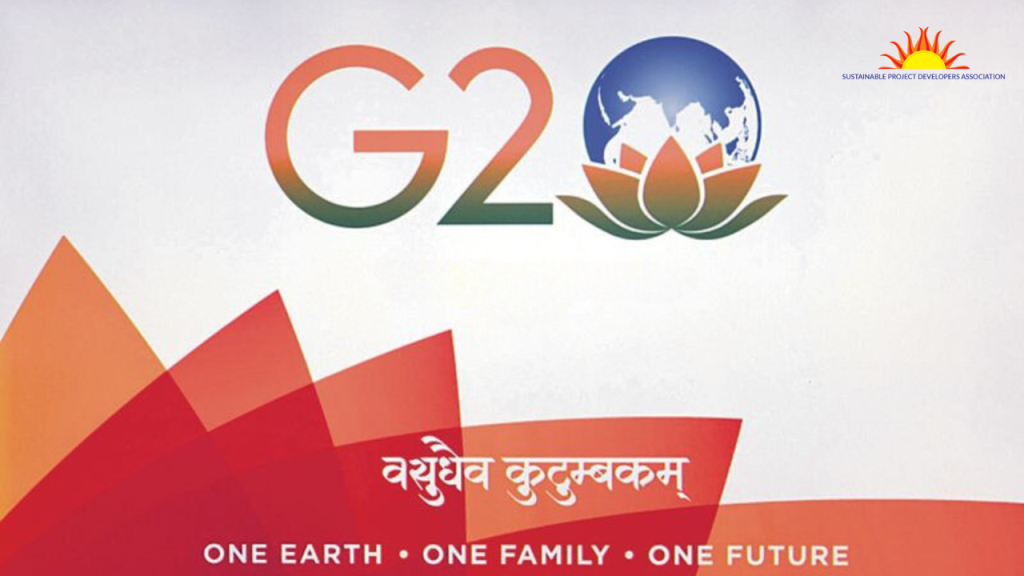
The G20 Trade and Investment Ministers’ Meeting recently concluded in Jaipur, India. Led by Sh. Piyush Goyal, India’s Union Minister of Commerce and Industry, Consumer Affairs, Food & Public Distribution, and Textiles, this pivotal gathering brought together ministerial delegations, representatives from G20 member countries, and International organizations such as the World Trade Organization (WTO), UNCTAD, International Trade Center, and OECD.
The G20 Trade and Investment Ministerial achieved consensus on five major action-oriented deliverables. These priorities encompassed trade for growth and prosperity, integrating micro, small, and medium-sized enterprises (MSMEs) in global trade, resilient global supply chains, logistics for trade, and WTO reforms. These topics received widespread support from the G20 Ministers.
Logistics for Trade
One of the key achievements of the G20 Trade and Investment Ministers’ Meeting was the adoption of High-Level Principles focusing on the digitalization of trade documents. This achievement marks a significant step forward in modernizing global trade practices. The G20 Ministers collectively outlined ten comprehensive principles aimed at guiding the transition from traditional paper-based trade documentation to a more efficient and secure digital format.
These principles underscore the critical importance of creating a secure, interoperable, and transparent environment for paperless cross-border trade.
In particular, inclusivity stands out as a core principle, reflecting the commitment to ensure that businesses of all sizes, regardless of their scale, can actively participate in this digital transition. This inclusive approach is expected to foster a more level playing field in the international trade landscape, enabling broader access and participation.
Jaipur Call for Action for MSMEs:
During the G20 Trade and Investment Ministers’ Meeting, the G20 Ministers recognized the unique challenges faced by Micro, Small, and Medium-sized Enterprises (MSMEs) within the current global trade landscape. In response to these challenges, they issued the “Jaipur Call for Action,” which serves as a significant initiative to enhance MSMEs’ access to essential trade-related information.
Given the expectation of continued subdued growth in cross-border trade, the “Jaipur Call for Action” is designed to address this by fostering the development of resilient, diversified, and sustainable Global Value Chains (GVCs). Moreover, it aims to promote the seamless integration of MSMEs into these GVCs through technology-enabled cross-border trade facilitation.
A key component of the successful implementation of the “Jaipur Call for Action” involves upgrading the International Trade Centre’s (ITC) Global Trade Helpdesk. This enhancement will play a pivotal role in improving the accessibility of trade-related information, making it more readily available to MSMEs. By providing MSMEs with the tools and knowledge they need to navigate the complexities of international trade, this effort is expected to empower them to participate more effectively in global markets.
Generic Mapping Framework for GVCs:
This framework comprises essential components for data collection, analysis, and representation of GVC-related information. Its primary objective is to identify critical dimensions that allow for the assessment of GVC resilience, both at the sectoral and product levels. Importantly, it places a strong emphasis on the importance of collaboration to ensure the continued robustness of GVCs.
The government remains steadfast in its commitment to promoting and upholding the development of resilient and inclusive Global Value Chains (GVCs). This commitment extends to ensuring that these GVCs uphold the building of resilient and inclusive GVCs that can withstand future shocks; make GVCs work for inclusive development; and support businesses in reviving GVCs’ growth.
The government also recognized the critical role played by free, fair, and open markets, as well as the rules-based multilateral trading system, in maintaining the resilience of GVCs. These principles are essential pillars that underpin the stability and effectiveness of GVCs on a global scale.
Trade for Growth & Prosperity
The meeting recognized the importance of WTO’s “Aid-For-Trade Initiative” to enable developing countries to effectively participate in global trade through enhanced local value creation.
The G20 Ministers welcomed the voluntary sharing of best practices on MRAs for professional services and supported the development of a compendium of best practices. This compilation will facilitate the recognition of technical qualifications for professionals, including doctors, nurses, lawyers, and architects, enabling them to provide their services across borders.
Effective Regulatory Cooperation
In a bid to tackle regulatory divergences, mitigate trade costs, and preempt unnecessary trade frictions, the G20 Ministers have enthusiastically endorsed the concept of a G20 Standards Dialogue set to take place in 2023. This visionary initiative is poised to create a platform where G20 members, policymakers, regulators, standard-setting bodies, and stakeholders converge to engage in constructive discussions.
Geopolitical Issues:
Among the G20 member nations, a majority expressed strong condemnation of the war in Ukraine. It was widely acknowledged that this conflict has resulted in immense human suffering and has exacerbated existing vulnerabilities in the global economy. The detrimental effects have been multifaceted, including constraints on economic growth, heightened inflation, disruptions in supply chains, increased energy and food insecurity crises, and elevated risks to financial stability.
The Way Forward:
As we look to the future, the G20 remains steadfast in its commitment to advancing international trade and investment for the betterment of resilient Global Value Chains (GVCs), the integration of Micro, Small, and Medium-sized Enterprises (MSMEs) into the global trade landscape, and the promotion of global growth and prosperity. The upcoming New Delhi Summit will provide an opportunity for world leaders to collectively address and prioritize these essential goals.
The commendable efforts of the Indian Presidency in hosting the G20 Trade and Investment Ministers’ Meeting have set the stage for continued collaboration among member nations. This cooperation will extend into Brazil’s G20 Presidency in 2024 and beyond, reinforcing the commitment of G20 nations to address critical global challenges collectively.
